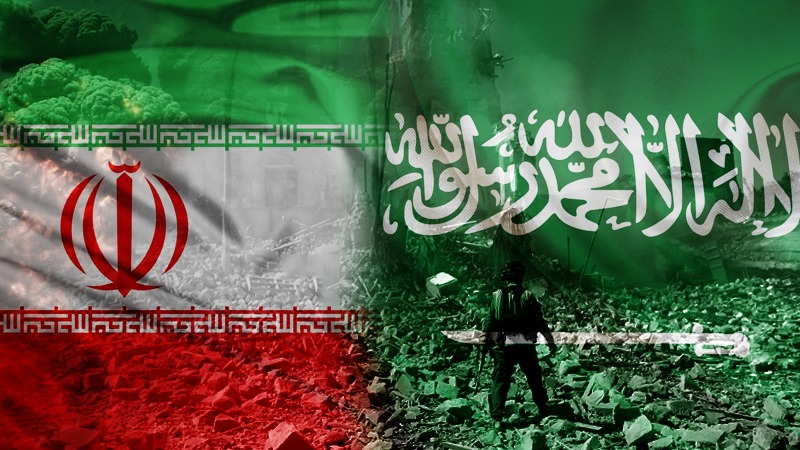After the recent brutal killing of opposition Journalist Jamal Khashoggi, heads all over the world turned towards Saudi Arabia. Everyone wants to know if the current crown prince, Mohammad Bin Salman, will face any consequences for his role in the incident.
Meanwhile, the Americans have initiated a so-called “peace process” to end the war in Yemen, a war which is considered Bin Salman’s personal war. This process aims at getting Saudi Arabia out of a quagmire it has been stuck in for about four years.
If you ask any person specialized in the history of the Arab Peninsula, he will tell you that seizing Yemen has always been a dream of the Saudi dynasty and that the late King Abdul Aziz Bin Saud, the establisher of the third Saudi dynasty, died with this dream in his heart.
When Abdul Aziz Established the new country, its income came from the pilgrims to Mecca and this income was to be given to Al-Alsheikh family, the descendants of Mohammad Bin Abd Al-Wahab, to be spent on spreading so-called Reformism in Islam (Salafi Wahabi Ideology), due to a historical deal made between Saudi dynasty and Mohammad Bin Abd Al-Wahab .
At that time, the richest parts of the Arab Peninsula were the parts nowadays known as Yemen and Oman where Trade and Agriculture were centered.
Since the establishment of the third Saudi dynasty in the Arab peninsula till now, all of Abdul Aziz’s sons have tried to fulfill their father’s dream in their own way.
After oil was discovered in Saudi Arabia the new policy of the Saudi Kings became forcing their will and control over the entire Arab Peninsula and therefore we even saw Saudi Arabia enter a direct war with Egypt in Yemen at 1963-1964, to counter the influence of Arab Nationalism Ideology of late Egyptian president Jamal Abdul Naser which was becoming popular in Yemen.
The irony is that in the 1960s, Saudi Arabia was supporting the Houthis, who they are currently destroying, against the nationalists in the south.
If Saudi Arabia would had given the 2 billion dollar loan its ally Abdrabbuh Mansur Hadi needed in 2014 to solve the fuel problems Yemen was facing, the new war in Yemen would have never started.
Bin Salman thought that attacking Yemen could be a good way for him to show-off, thinking that with the most modern Western weapons defeating Yemen would be a piece of cake, and that, by fulfilling his grandfather’s dream, he could secure his position as the future king of the country.
Bin Salman just needed a reason to initiate his war against the Yemenis, and of course, the easiest one available was to simply claim to be fighting Iranian influence in Yemen, a reason all his western friends would support.
United Nations Envoy for #Yemen: Iran is not innocent of involvement pic.twitter.com/E9NZsv6LK3
— Saudi Embassy (@SaudiEmbassyUSA) 12 de abril de 2017
We must then ask, was there actually any Iranian influence in Yemen? And if so, can we then consider the Yemen war to be a proxy war between Iran and Saudi Arabia?
Those following the Yemeni issue could easily tell you that the Iranian Shiite follow the twelve Imam branch of Islam, while the Houthis follow the Zaydi Shiite branch which is actually much closer to the Hanafi school of Sunni Islamic jurisprudence.
With this in mind, anyone can tell that, though the Iranians and the Houthis are both Shiites, the differences between them could never lead them to unite around common Shiite beliefs.
Iran hosting international conference on Yemen amid Saudi war#Iran #SaudiCrimes #StopWarOnYemenhttps://t.co/FgCH74V5Jj
— Iran (@Iran) 22 de novembro de 2018
The late Dr. Qazanfar Rokn Abadi, the previous Iranian Ambassador to Lebanon, once told me that, before 2015, Iranians were trying their best to build good relations with Yemeni people, and especially the Houthis, but had not managed to develop anything even close to the relations they had had in Lebanon, Iraq or Syria, or the Sunni Palestinians in Gaza or the Sunni Kurds in Iraq, but the Saudi attack against the Yemeni people gave the Iranians the very gift they were seeking: a chance to have very good relations with the Yemeni people which the Iranians won’t let pass.
It used to be a popular joke among weapon smugglers that you can find three times more Kalashnikov guns in Yemen than Yemeni people.

















Leave a Reply